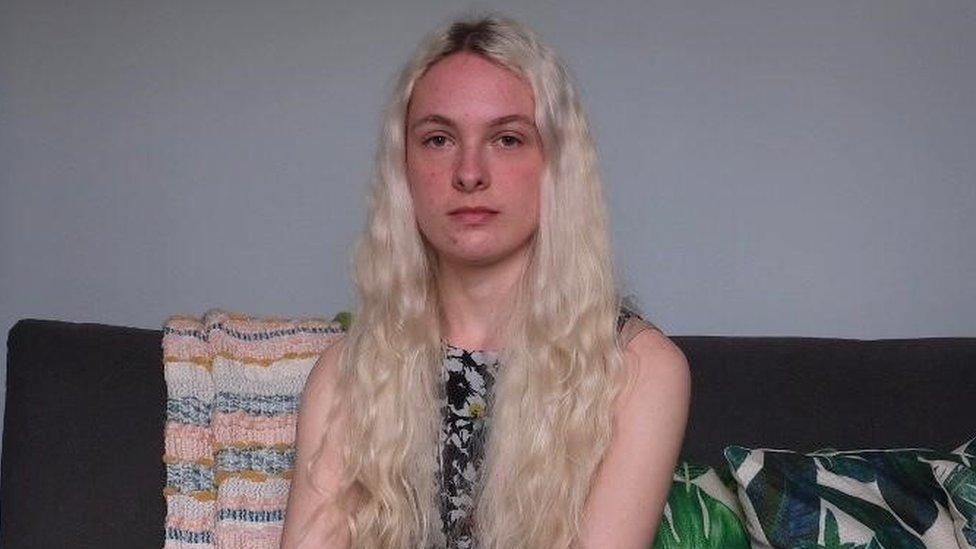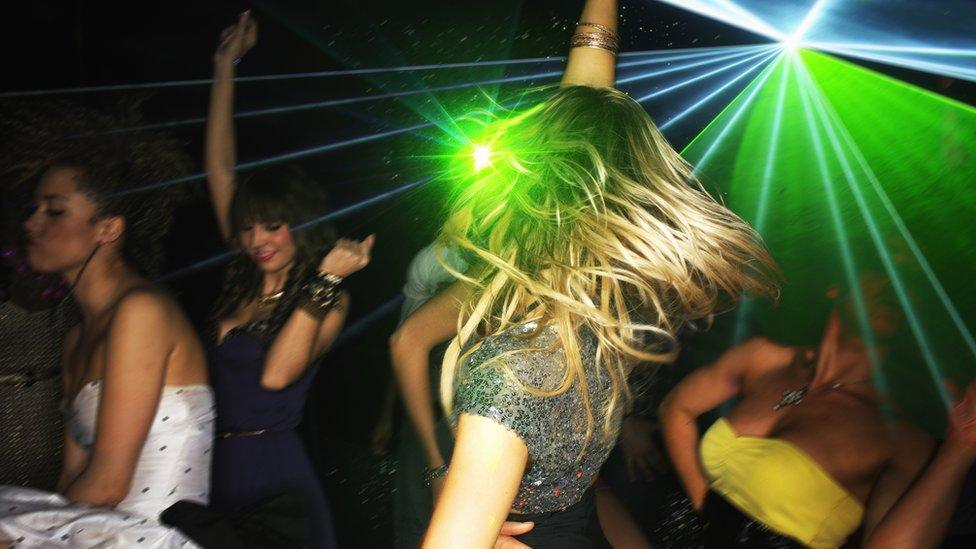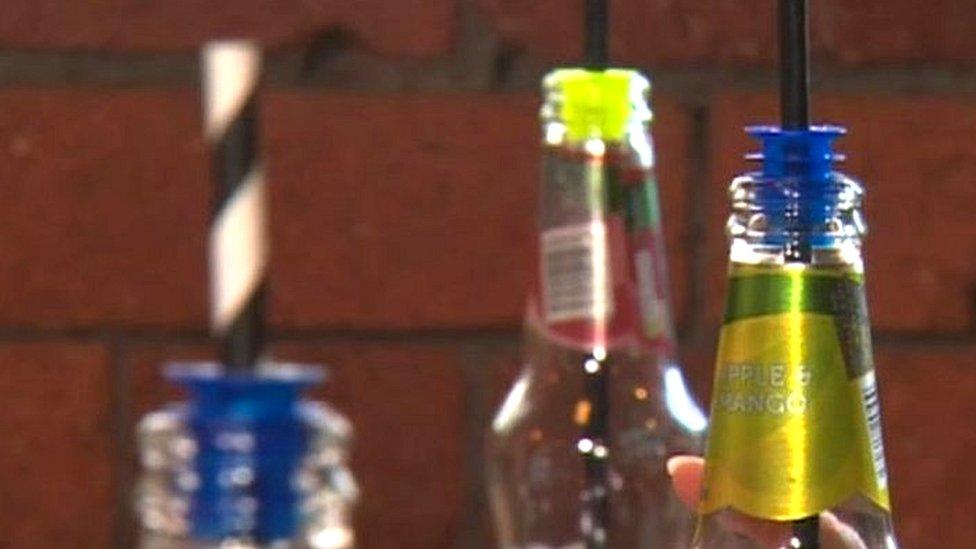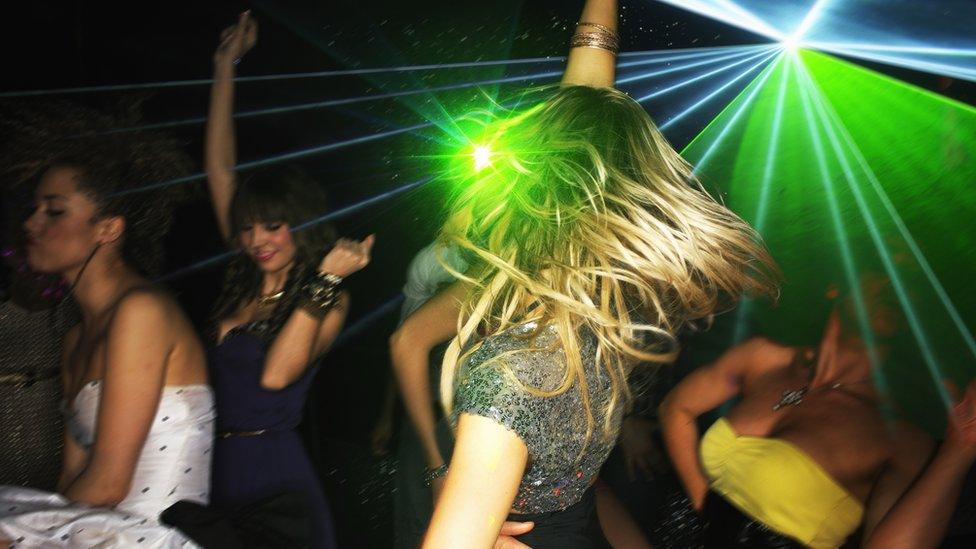Drink spiking victim: I waited 34 hours for tests
- Published

Jess Insall told BBC Scotland: "I went to the bathroom feeling fine and then woke up on the floor an hour later"
A teenager who believes her drink was spiked during a night out said it took 34 hours for police to obtain samples.
Jess Insall collapsed in the toilet of a Glasgow pub last month and woke up an hour later with no recollection of what had happened.
The following day she was given the wrong advice three times about who had responsibility for carrying out blood and urine tests.
Police Scotland confirmed a complaint had been made against them.
Ms Insall shared her experiences as an investigation by MPs found spiking victims were too often brushed off as having had "one too many" which meant the crime was under-reported.
Last year, Police Scotland investigated claims that women on nights out were spiked using injections.
But in January a senior officer said the force found no evidence of any such cases in Scotland.
Ms Insall told BBC Radio's Good Morning Scotland programme she was out with friends on the evening of Friday 25 March.
The 19-year-old said: "I went to the bathroom feeling fine and then woke up on the floor an hour later.
"I could not move. I was covered in sick. I had not had much to drink so I knew it was not just alcohol."
Her friends called an ambulance but were unable to get one as the service was only responding to emergencies.
Ms Insall, from Stirling, spent the night at her parents' house instead of her flat and contacted police the following morning.
During her interview with officers, the teenager asked about samples but said she was told she would have to go to the hospital.

Ms Insall then called NHS 24 and said she was advised to go to the Queen Elizabeth University Hospital in Glasgow.
But once there, she said staff told her it was the responsibility of the police to collect samples.
The teenager, who was kept in hospital for the day, said she called Police Scotland and was told that was indeed the case.
She added: "I could not get samples that day then there were no police on duty that evening who could take the samples.
"It took 34 hours from the time I was spiked to the time I got the samples."
Ms Insall said drugs such as GHB, which was recently reclassified by the Home Office, external, could be out of your system within eight hours.
'Mixed-up and confused'
Reflecting on her ordeal, she said: "I will probably never know what it was that was in my drink or what it was that left me in that state that night".
Ms Insall told the programme her friends and family had helped her come to terms with what happened.
But she can understand how victims come to doubt what happened to them.
"How are you meant to have your own voice, which already feels very mixed-up and confused," she said.
"And how are you meant to stay strong against that kind of resistance?"
Det Insp Stuart Gillies confirmed that officers were conducting inquiries into the report of drink spiking at a premises on West George Street.
He said: "The welfare of the victims in these incidents is of paramount importance.
"Police Scotland has clear protocols in place to ensure full and thorough investigations are carried out in all reported incidents and this includes the obtaining of relevant samples where appropriate.
"We work with a range of partners, both locally and nationally, to ensure licensed premises are safe spaces for all, through the continued delivery of ByStander Awareness training."
A police spokeswoman later said: "A complaint against the police has been made in relation to this incident and is currently under investigation."
'Grey area'
Det Insp Gillies urged anyone who believed their drink had been spiked or they had been assaulted in this way to contact officers, external.
He added: "Anyone who may have a complaint about how their case has been handled should also come forward and speak to us."
Dawn Dines, founder of Stamp Out Spiking, told Good Morning Scotland there seemed to be a "grey area" when it came to taking responsibility for victims, who were often left confused and with no memory.
She has been campaigning for new legislation to tackle the problem.
Ms Dines added: "We just feel that for it to be an offence in its own right it would give the victims more chance to report this crime if it was recognised as a criminal offence and it would give a clear message to potential drink spikers that this is not acceptable and you will receive severe penalties for doing this.
"Most importantly, we feel it would allow the police a chance to identify the perpetrators and gain patterns of offending so they can profile the sorts of people who are actually doing this disgusting crime."
'Utterly abhorrent'
The home affairs committee report, which focuses on England and Wales, said anecdotal evidence suggested the practice was "widespread and dangerous".
But the MPs found insufficient data to give an accurate picture of the prevalence of spiking, arguing that more needed to be done to support victims.
The Home Office is also considering whether a specific new offence of spiking is needed.
A Scottish government spokesman said: "The act of spiking is utterly abhorrent and we remain absolutely committed to working with partners - including Police Scotland, health services and third sector organisations - to tackle all forms of violence against women.
"Police Scotland have reported a downward trend in recorded spiking incidents since November last year and there are a range of existing criminal laws in Scotland that can be used to prosecute anyone who is found to have spiked a person.
"It is important that we all continue to remain vigilant as we emerge from the social constraints as a consequence of the pandemic."
Related topics
- Published20 October 2021

- Published26 April 2022

- Published20 January 2022
